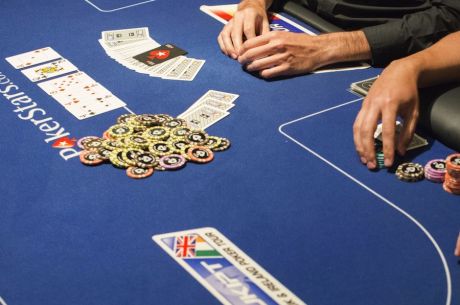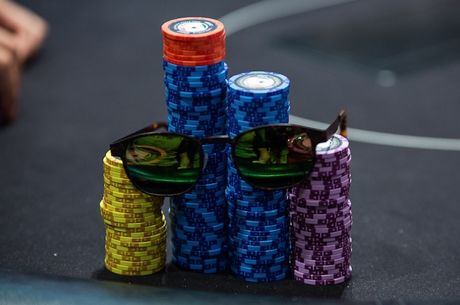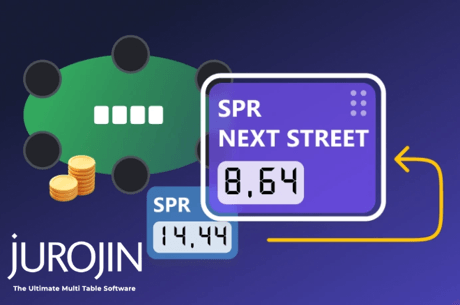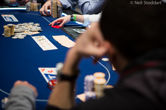Replacing Mistakes with Mistakes in Poker
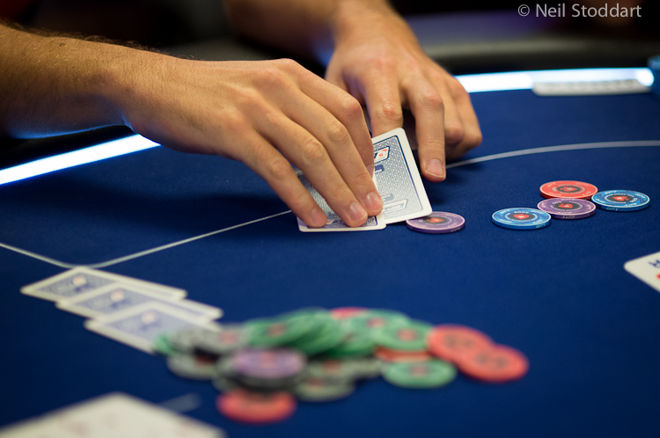
To advance in poker is to stop making one set of mistakes and start making a different, hopefully less severe set of mistakes.
Beginners, for example, tend to ignore position. Once they stop ignoring position, they tend to start using it badly. Eventually they use it better, but then they introduce new bet-sizing errors or they even start overvaluing position.
As we progress, our mistakes get harder to diagnose and fix. In my coaching and in my work on the Thinking Poker Podcast, I've found some places where a whole lot of people get stuck. Here is one area where players tend to progress steadily but then stall — their choice of bluff catchers.
Beginners at poker tend to call if their hand seems good and to fold otherwise, without thinking too much about what their opponents hold. After a while, they learn that when the decision is between calling and folding, the decision should be based on relative and not absolute hand strength.
They figure out that it doesn't matter how high their hand is on a hand-ranking chart, only whether their hand is better than the other guy's. As a result, they try to guess what the other player has, calling if it's worse than what they have and folding otherwise.
If your guesses are sufficiently accurate, that's a great method for deciding whether to call or to fold. None of us can guess a specific hand correctly every time, however, so we start using pot odds more heavily to make our decisions, calling more when we're getting a better price. Eventually we combine this with the understanding that we should choose calling hands according to the set of hands that we and our opponents can hold, neither calling nor folding too much.
Here's where a new set of mistakes comes in, however. Just knowing that your calling hand should have something to do with your range and with your opponent's isn't enough. At least three new mistakes are possible here:
1. Conflating preflop strength with situational strength
I've often heard players say that "if I'm folding AxQx here, I'm folding too much," and that might well be true. These statements, however, often seem to have more to do with the fact that AxQx is a good starting hand than whether AxQx is strong in a given situation — say, on a QxJx10x board.
A common mistake in this style is to get too sticky with medium pocket pairs in situations where it would be better to call with ace-high. Often what underlies this mistake is an attachment to a hand that's proportional to its strength as a starting hand, not in a situation.
2. Ignoring small chances to catch up
This is another mistake lurking behind the decision to call with, say, 6x6x instead of AxQx on a Jx8x2x board. Players are focused too much on whether they're ahead or behind and not enough on what their equity is if they're ahead or behind.
When you have a flush draw, it's obvious enough that you (usually) have some chance to win. In that case it's a bit easier to forget about the chances AxQx can improve, and it's even easier to forget that the three or six outs that overcards provide are quite a lot more than the two outs from a pocket pair.
The equity difference is often just a couple percent, but over the course of the year that will add up to a lot of money, especially if you play later streets intelligently.
3. Ignoring range advantage
Usually, it's not correct to fold most or all of your range. Sometimes, however, the board just hits one player harder than another. This is especially true when the best 10 percent or so of starting hands are far better on a given board than the next 20 percent or so — in that case, an early-position raiser or three-bettor should have way the best of it.
In these situations, worrying about defending even half of your range against a bet can be an enormous mistake. The board intervened and put most of your range well behind most of your opponent's. Here, folding is often the best you can do.
If, like so many players, you have advanced enough to be aware that you ought to choose calling hands in a range-aware way, but are still fuzzy on the details of how to do that, I hope you're closer to eliminating a set of mistakes. In a follow-up to this discussion, I'll soon discuss another set of poker mistakes.
The Kindle edition of Nate Meyvis's book, Thinking Tournament Poker, Volume 2, is available on Amazon. Be sure also to check out Nate and Andrew Brokos on the Thinking Poker Podcast, and for more from Nate visit his blog at natemeyvis.com.

